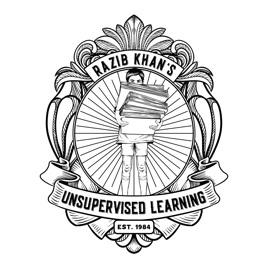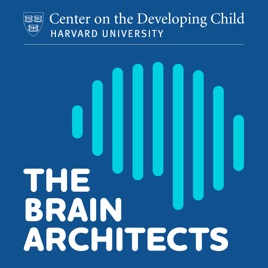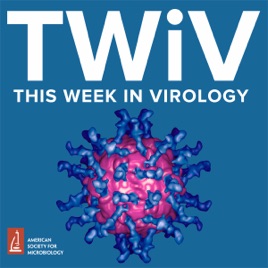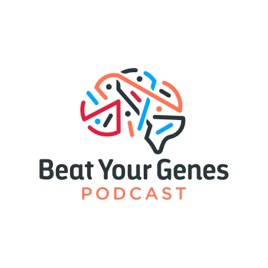
Advertise on podcast: Razib Khan's Unsupervised Learning
Rating
4.8 from
Country
This podcast has
181 episodes
Language
Publisher
Explicit
No
Date created
2020/11/26
Average duration
81 min.
Release period
7 days
Description
Razib Khan engages a diverse array of thinkers on all topics under the sun. Genetics, history, and politics. See: http://razib.substack.com/
Podcast episodes
Check latest episodes from Razib Khan's Unsupervised Learning podcast
James Miller: the end of world as we know it
2024/02/23
For the first time ever, parents going through IVF can use whole genome sequencing to screen their embryos for hundreds of conditions. Harness the power of genetics to keep your family safe, with Orchid. Check them out at orchidhealth.com.
On this episode of Unsupervised Learning Razib talks about AI, the singularity and the post-human future, with James D. Miller, a Smith College economist, host of the podcast Future Strategist and the author of Singularity Rising: Surviving and Thriving in a Smarter, Richer, and More Dangerous World. Miller and Razib first met at 2008’s “Singularity Summit” in San Jose, and though Singularity Rising was published in 2012, some of the ideas were already presented in earlier talks, including at that conference. More than 15 years since Miller began formulating his ideas, Razib asks him how the theses and predictions in his book have held up, and how they compared to Ray Kurzweil’s The Singularity is Coming. On this last point, Miller is very bullish on Kurzweil’s prediction that artificial intelligence will surpass that of humans by 2030. He also believes that the “intelligence explosion,” Kurzweil’s “technological singularity” when AI transforms the earth in unimaginable ways through exponential rates of change will in fact come to pass.
But while Kurzweil predicts that the singularity will usher in an era of immortality for our species, Miller has a more measured take. He believes AI will drive massive gains in economic productivity, from cultural creativity to new drug development regimes (one of the original rationales behind IBM’s AI program). But while Kurzweil anticipates exaltation of conscious human life into an almost divine state, Miller suspects that AI may eventually lead to our demise. He estimates a 10% probability that Kurzweil is correct that we will become immortal, and a 90% probability that AI will simply shove us aside on this planet as it begins to consume all available resources.
Overall, Miller is satisfied with the predictions in the first third of Singularity Rising. Computational technology has become far more powerful than it was in the late aughts, with a supercomputer in everyone’s pocket. Though the advances in AI seem to exhibit discontinuities, in particular with the recent seminal inventions of transformers and large language models coming to the fore, the smoothed curve aligns with Kurzweil’s 2030 target for human-level intelligence. On the other hand, where Miller has been disappointed is the merely modest advances in biological human engineering, with far fewer leaps forward than he had anticipated. Razib and Miller discuss whether this is due to limitations in the science, or issues of governance and ethics. Miller closes making the case for a program of cloning the great 20th-century genius John von Nuemann and the statesman Lee Kuan Yew.
While the computational innovation driving AI seems to have advanced on schedule, and the biological revolution has not taken off, the last section of Miller’s book focused on the economic impacts of the impending singularity. He still believes the next 10-20 years will be incredible, as our economy and way of life are both transformed for the good. Until that is, humans become obsolete in the face of the nearly god-like forms of AI that will emerge around 2050. Until then, Miller anticipates the next generation will see rapid changes as people make career shifts every half a decade or so as jobs become redundant or automated. If Singularity Rising proves correct, the next generation will be defined by what the economist Joseph Schumpeter termed “creative destruction.” If Miller is correct, it may be the last human generation.
more
Rob Henderson: foster-kid to Ivy League graduate
2024/02/22
For the first time ever, parents going through IVF can use whole genome sequencing to screen their embryos for hundreds of conditions. Harness the power of genetics to keep your family safe, with Orchid. Check them out at orchidhealth.com.
On this episode of Unsupervised Learning Razib talks to Rob Henderson, author of the new book Troubled: A Memoir of Foster Care, Family, and Social Class. Henderson is a commentator known for coining the term "luxury beliefs," a tendency among elites to use their beliefs to signal social status, with real-life costs of those beliefs born by non-elites alone. Henderson grew up in California foster homes, before being adopted into a working-class family in Redding, CA. After an academically undistinguished period in high school, he joined the U.S. Air Force straight out of high school, eventually serving a short stint in Germany. While in the military, he was identified as intellectually gifted via standardized tests, and it was during this time that Henderson developed habits that equipped him to become an exemplary airman, and eventually a public intellectual. Along the way, Henderson earned a bachelor’s degree from Yale and a Ph.D. in psychology from Cambridge University.
Henderson first came to public prominence with his 2018 New York Times op-ed, Why Being a Foster Child Made Me a Conservative. Later he outlined the concept of luxury beliefs in Quillette, and moved his popular newsletter to Substack.
Troubled fleshes out the working-class life experiences that made Henderson who he is today, and how and what sets him apart from other members of the elite-educated “professional-managerial class.” While he was an indifferent student who barely graduated high school, parental expectations prepped Henderson’s classmates for the Ivy League. At the time Henderson was studying at Yale, the median family income of his fellow students was $192,000. In Redding, CA, where he grew up, the median family income was about $65,000. About ten times as many Yale students hailed from the top 1% (19%) than the bottom 20% (2.1%) of family income. Troubled would shock many of Henderson’s Yale classmates, because the economic, social and cultural deprivation and domestic volatility he describes would be so alien and unrelatable. Among the most striking illustrations of how he grew up was Henderson’s perplexity upon being expected to be excited for his first birthday party in his adoptive home. As a former foster child with a winter-break birthday, not only had he never received presents, had a cake or a party. Henderson had literally never been sung “Happy Birthday.” Troubled beings with Henderson’s primary memories of his Korean immigrant mother when he was a toddler. After she was deported, Henderson’s formative years in childhood were spent as a ward of the state, shuffled from foster placement to placement.
Razib also touches on something that Henderson has discovered in the last few years with consumer genetics. Not knowing who his father was, and clearly not being fully Asian, he had always trusted he was of mixed white and Korean heritage. But a 23andMe test makes it plain that his father was genetically Mexican. Not entirely shocking as Henderson was conceived in Southern California, the genetic test turned him overnight into a “BIPOC” individual, with nearly 20% indigenous American ancestry.
more
Wilfred Reilly: a social scientist in the culture wars
2024/02/08
For the first time ever, parents going through IVF can use whole genome sequencing to screen their embryos for hundreds of conditions. Harness the power of genetics to keep your family safe, with Orchid. Check them out at orchidhealth.com.
In this episode, Razib talks to Wilfred Reilly, political scientist, author and fearless cultural commentator. Reilly holds a Ph.D. in political science from Southern Illinois and a J.D. from the University of Illinois. Raised in a working-class neighborhood on Chicago’s South Side, he discusses his ten-year diversion from academia, including his stints as a canvasser for the gay rights group the Human Rights Campaign and a corporate salesperson. A prolific public intellectual, Reilly is the author of Lies My Liberal Teacher Told Me, Taboo: 10 Facts [You Can't Talk About] and Hate Crime Hoax: How the Left Is Selling a Fake Race War.
Razib asks what it means to be a “black conservative,” and Reilly responds that the term brackets all black intellectuals who dissent from the progressive orthodoxy, ranging from rock-ribbed right-wingers like Thomas Sowell to moderate liberals like John McWhorter. They also discuss the excesses of Civil Rights legislation and Richard Hanania’s thesis in The Origins of Woke: Civil Rights Law, Corporate America, and the Triumph of Identity Politics that the legal system is geared toward racial progressivism. Reilly believes that wokeness cannot be rolled back until that institutional and legal framework driving for radicalism is neutered.
Segueing into the domain of political science, Razib and Reilly discuss the difference between avowed preferences and revealed preferences around issues like abortion and pornography. Both agree ordinary Americans strongly disagree with ideologues who hold extreme policies. Reilly also points out the strangeness that many of the most violent and visible activists during the BLM protests were white, and he holds these are the people who are buying books by radical activist professors like Ibram Kendi, who meanwhile has little real influence among black academics.
They also discuss diversity within the black American community, including Laurence Otis Graham’s exploration of socioeconomic status in Our Kind of People: Inside America’s Black Upper Class. Reilly talks about his more upper-class mother’s attempt to inculcate elitism within him, and its failure to stick. Then Razib moots the question of the differences between “American Descendents of Slaves” (ADoS), Africans and Caribbeans, and the fact that Harvard refuses to survey its black students by sub-demographic. Finally, Reilly expounds at length on his “anti-doomer” views, arguing that economic, social and environmental catastrophism is almost always wrong, as well a providing a hearty defense of the cultural richness and economic dynamism of the Midwest.
more
Erich Schwarz: in the beginning was the worm (C. elegans)
2024/02/03
For the first time ever, parents going through IVF can use whole genome sequencing to screen their embryos for hundreds of conditions. Harness the power of genetics to keep your family safe, with Orchid. Check them out at orchidhealth.com.
Today Razib talks to geneticist Erich Schwarz, a Research Professor in the Department of Molecular Biology and Genetics at Cornell University since 2012. Schwarz has a molecular biology degree from Harvard and a Ph.D. from Caltech. After working with the fruit fly Drosophila melanogaster in graduate school, he switched to the nematode Caenorhabditis elegans, and has continued studying nematodes ever since. After helping to found the C. elegans genome database WormBase (wormbase.org) in the early 2000s, he began sequencing and characterizing the genomes of several nematode worms other than C. elegans, either because they are biologically informative or because they are worldwide parasites. His current work includes using the genome of Ancylostoma ceylanicum to help devise an anti-hookworm vaccine.
Schwarz explains why C. elegans, often called “the worm,” has been so useful in developmental and molecular genetics, and its role in the career of the late Nobel laureate Sydney Brenner. With a simple anatomical structure, every single one of the 1,000 cells of C. elegans has been mapped and detailed. Despite its small size, this organism has spawned a research community of thousands, documented in Andrew Brown’s In the Beginning Was the Worm: Finding the Secrets of Life in a Tiny Hermaphrodite. In the age of hundreds of thousands of human genomes, Schwarz explains the decades-long period in the late 20th century when biological research was dominated by “model organisms,” simple and easy-to-experiment-on animals, plants and bacteria that could eloquently and plainly elucidate universal and essential mechanisms of function and structure.
Razib and Schwarz also discuss the future of model organisms in a genomic future, when high-throughput data analysis can supercharge decades-long experimental projects. Ultimately, the future is not likely to see model organisms set aside, but rather to witness them merged into the broader research community in human and medical genomics which has been driving technological changes in sppedspeed and volume of data collection.
more
Seth Stephens-Davidowitz - Who Makes the NBA?: Data-Driven Answers to Basketball's Biggest Questions
2024/01/31
For the first time ever, parents going through IVF can use whole genome sequencing to screen their embryos for hundreds of conditions. Harness the power of genetics to keep your family safe, with Orchid. Check them out at orchidhealth.com.
Today, Razib talks to Seth Stephens-Davidowitz, author of Who Makes the NBA?: Data-Driven Answers to Basketball's Biggest Questions and Everybody Lies: Big Data, New Data, and What the Internet Can Tell Us About Who We Really Are. Stephens-Davidowitz, formerly of Google and The New York Times, is a freelance data scientist and author. He has a degree in philosophy from Stanford and a PhD in economics from Harvard. In this episode, he discusses his process of writing Who Makes the NBA?, which he crafted in a month using ChatGPT’s code interpreter feature, and the biggest insights from his book.
Razib probes Stephens-Davidowitz on the relationship between height and athletic ability, and why success in the NBA has the largest heritable component of any major league sport. They also discuss the finding that children of NBA players enjoy a non-genetic advantage in basketball, and why those who make it into the league and succeed are from higher socioeconomic strata. Stephens-Davidowitz also discusses why international basketball is popular in the former Yugoslavia and Lithuania, and how the popularity of volleyball in Iran and Brazil affects the pipeline of talent from those nations.
The episode concludes with the author’s detailed thoughts about what it was like to write a book assisted by AI, and the feasibility of this sort of content creation over the next decade. Razib and Stephens-Davidowitz discuss the possibility of massive productivity gains from AI over the next few years and the long-term feasibility of writing careers if AI keeps improving at the current rate. Finally, Stephens-Davidowitz lays out his plan to write his next few years’ of books at a far faster clip, relying on AI assistance..
more
Alexander: the psychology of dating
2024/01/30
For the first time ever, parents going through IVF can use whole genome sequencing to screen their embryos for hundreds of conditions. Harness the power of genetics to keep your family safe, with Orchid. Check them out at orchidhealth.com.
Do 20% of the men on dating apps get 80% of the dates? Is the Zoomer generation the sexless generation? What are the best predictors of relationship success? These are some of the questions Razib asks Alex of DatePsychology on this episode of Unsupervised Learning. A psychologist who studied cognitive and behavioral neuroscience in graduate school, Alex explores topics around dating on his YouTube channel and disseminates the latest research via his tweets (you can also subscribe to his newsletter). In a world where the “discourse” is filled with anecdotes and ideology, Alex’s modus operandi is to ask “what does the scientific literature say?”
Razib and Alex talk about various online subcultures, from incels to “pickup artists,” what they get right and wrong about dating culture and the impact of technology on long-standing dynamics, like the art of approaching women in public places like bars. Alex also discusses how the proliferation of dating apps has changed the dynamics of the online dating marketplace over the last 20 years. Razib probes him about the variables correlating with dating and compatibility, from looks to values to personality. Does intelligence matter in partner compatibility? They also discuss cross-cultural differences, and how urban dating markets differ from those in more rural locales. The online discourse is filled with individuals opining about dating and culture, but into this space of vapid assertion, Alex presents study after study of peer-reviewed research.
more
David Lightbringer: mythopoetic interpretations
2024/01/29
For the first time ever, parents going through IVF can use whole genome sequencing to screen their embryos for hundreds of conditions. Harness the power of genetics to keep your family safe, with Orchid. Check them out at orchidhealth.com.
On this episode of Unsupervised Learning Razib talks to David Lightbringer, a YouTube content creator who focuses on the world of The Game of Thrones and the mythologies of ancient peoples. Though Lightbringer writes essays, and distributes his thoughts via podcast (and you can also read his views in short-form on numerous topics via his tweets on X), his primary platform is his YouTube channel. Lightbringer’s videos, range across topics as diverse as “Harappans, Aryans, and the Bactria-Margiana Archaeological Complex: Indian Origins” to “The Grey King: Secret PreHistory of the Ironborn.”
Two years ago, journalist and entrepreneur Antonio García Martínez declared that we were entering a new “age of orality.” By this, he meant that the primacy of text was declining in our culture, as younger generations preferentially consumed audio content over magazines. Perhaps Martínez could even have stipulated that this was the age of “audiovisuality.” Anyone producing podcast content knows that the “Zoomer” generation, those born after 1995, prefer not to subscribe to a feed proactively. Instead, they spend their days passively “consuming content” by leaving YouTube in the background at length. Nearly 40% of this generation spends four or more hours a day on social media, and 88% use YouTube. Lightbringer is part of this massive, new world of creators who produce history, literary and cultural commentary content for those who prefer hour-long documentaries or impassioned monologues to short clips of funny cat memes.
Razib and Lightbringer discuss his analytic method for producing secondary commentary on George R. R. Martin’s Song of Ice and Fire. Lightbringer points out that Martin has been explicit and open about his myriad literary influences, so filling in the “backstory” to the history and anthropology of his universe often involves detective work into its cultural roots, which go back to figures as diverse as J. R. R. Tolkien and H. P. Lovecraft, as well as ancient motifs and primal archetypes drawn from the mythologies of varied cultures. The same methodologies we can use to analyze “real” mythology, religion and cultural history, can also be employed for fantastical literary worlds. Razib and Lightbringer also shine the light on the vast world of literature and history on YouTube, which is now the primary mode for many people’s autodidact pursuits. Razib argues for the value of text, while Lightbringer asserts that the visual aspect of YouTube documentaries allows for both greater accessibility and more informational richness.
more
Cesar Fortes-Lima: the three thousand-year odyssey of the Bantu
2024/01/28
For the first time ever, parents going through IVF can use whole genome sequencing to screen their embryos for hundreds of conditions. Harness the power of genetics to keep your family safe, with Orchid. Check them out at orchidhealth.com.
On this episode of Unsupervised Learning Razib talks to human geneticist Cesar Fortes-Lima about his new paper, The genetic legacy of the expansion of Bantu-speaking peoples in Africa. Fortes-Lima has a Ph.D. in Biological Anthropology and his primary research areas include African genetic diversity, African diaspora, transatlantic slave trade, demographic inference, admixture dynamics and mass migrations. Most recently a postdoctoral fellow in the Department of Human Evolution at Uppsala University, he has recently taken a position in Ambroise Wonkam Laboratory at Johns Hopkins University.
Razib and Fortes-Lima discuss the primary conclusions of his blockbuster paper, which was published in Nature. When did the Bantu people begin their migrations? What were their origins? And what routes did they follow as they expanded to cover a third of the African continent? They also discuss the earlier peoples of East Africa and the relationship of the Bantu to Cushitic pastoralists and Khoisan foragers. Fortes-Lima addresses how the inclusion of 1,763 participants, including 1,526 Bantu speakers from 147 populations across 14 African countries, and whole-genome sequences from 12 Late Iron Age individuals, allowed them to use spatially explicit methods correlating genetic, linguistic and geographical variables. They found support for a serial-founder migration model, and determined population sizes, as well as testing alternative models of migration and admixture. Unlike many historical population genetic analyses, The genetic legacy of the expansion of Bantu-speaking peoples in Africa explicitly tests competing hypotheses. Finally, Fortes-Lima also discusses the broader necessity for greater diversity in genetic datasets, and how this study advances that project by adding thousands more geographically disparate samples.
more
Cody Moser: the adaptive landscape of cultural evolution
2024/01/09
For the first time ever, parents going through IVF can use whole genome sequencing to screen their embryos for hundreds of conditions. Harness the power of genetics to keep your family safe, with Orchid. Check them out at orchidhealth.com.
On this episode of Unsupervised Learning, Razib talks to Cody Moser, co-author of a recent paper, Innovation-facilitating networks create inequality. Moser is an evolutionary psychologist and cultural evolutionist at UC Merced, where he is completing his doctorate. A previous guest on the podcast, Moser immediately digs deep into the abstruse and technical model that shows that more is not automatically better when it comes to innovation and discovery. First, he contrasts his results with the Tasmanian cultural evolution model outlined by Joe Henrich nearly 20 years ago. In short, Henrich showed that very small populations tend to lose cultural traits and skills over time. Going through a population bottleneck has a memetic as well as genetic effect. The converse scenario is one where a large population is able to retain and even accumulate more cultural traits and skills.
Moser’s main finding is that some fragmentation of these large populations may in fact foster innovation. On the evolutionary psychological scale, massive groups may tend toward conformity, and disrupting information flows may foster independence of thought. A significant immediate implication is that scholarly thought might benefit from separating into competing schools and departments where distinct groups can develop solutions collectively but retain enough independence to resist being drawn into broader irrational herd behavior. Moser’s results have broader implications for how businesses and corporations should operate, and perhaps quantify why nimble startups often outpace and defeat massive organizations despite the latter having almost infinite resources. Groupthink is powerful. Though small populations will be hit by skill loss with the death of keystone individuals, large populations may ossify, “locking in” regnant ideologies.
Razib also probes Moser about the rise of agent-based modeling and simulations in social science over the last 20 years, and how they have allowed scholars to circumvent the limitations of relying purely on college students to act as experiment subjects.
more
Katherine Brodsky: After 10/7 in Israel, Europe and the US
2024/01/09
For the first time ever, parents going through IVF can use whole genome sequencing to screen their embryos for hundreds of conditions. Harness the power of genetics to keep your family safe, with Orchid. Check them out at orchidhealth.com.
Katherine Brodsky hosts the Substack Random Minds and is author of the soon-to-be-published book No Apologies: How to Find and Free Your Voice in the Age of Outrage―Lessons for the Silenced Majority. The daughter of Ukrainian Jewish immigrants to Israel and then Canada, Brodsky has worked as a photographer, in public relations and as a publisher. A recent visiting fellow of the Danube Institute, she is freshly back in North America in the wake of Israel’s Gaza invasion, following the Hamas attacks of 10/7.
Razib and Brodsky have a wide-ranging conversation about her travels in Europe, her return to North America, her understanding of Israel and what it’s like to be a Jew in the world today. Despite Hungary being ruled by a right-wing government for the past decade, Brodsky observes that it is the European nation where she perceived the least public anti-Semitism, in large part due to government policy suppressing such sentiments. In contrast, she felt very uncomfortable and even afraid in London when she visited during the mass protests in support of the Gazans. Brodsky has also been shocked by the unanimity of the global Left in support of the Palestinians, and the dismissal by many feminist organizations of the reality of sex crimes committed by Hamas on 10/7. A secular Jew, Brodsky has now begun to wear visible signs of her Jewishness as a rebuke to the anti-Semitism she sees all around her.
Razib asks her about her opinions in regard to free speech and the battle between pro-Israel and pro-Palestinian factions in the media. Brodsky believes that the topic of her book, No Apologies, is even more relevant after the events of the last few months than it was when she initially wrote the book proposal. They discuss the lack of dialogue, debate and the polarization into strict information tribes. When it comes to information, they touch upon semantic arguments about indigeneity, who is a settler in the context of Israel-Palestine, and how it relates to genetics, history and archaeology.
more
Introducing GenRAIT: when technology drives scienceIntroducing GenRAIT: when technology drives science
2024/01/09
For the first time ever, parents going through IVF can use whole genome sequencing to screen their embryos for hundreds of conditions. Harness the power of genetics to keep your family safe, with Orchid. Check them out at orchidhealth.com.
Today, Razib cross-posts an episode of his other podcast. When not working on this Substack, Razib devotes his time to GenRAIT, a startup accelerating scientific discovery by providing infrastructure and tools to researchers. GenRAIT fosters science and discovery by making biological data accessible, usable, and minable.
Razib and his cofounders, Dr. Santanu Das and Taylor Capito, will talk about what they’ve built at the JPM Healthcare Conference in San Francisco, January 8th-11th, and showcase their products at the Plant and Animal Genomes Conference in San Diego, January 12th-17th.
After an overview of GenRAIT’s business logic with Capito, Razib digs deeper with Dr. Das, a computer scientist by training, and discusses what machine learning is, drilling down into details like the difference between SVM and random forest models. Dr. Das surveys the multi-decade arc of “Artificial intelligence” (AI), predicts its inevitable utility in biology, and makes the broader case for productizing scientific tools to empower bioinformaticians, ML engineers and data scientists as an integral part of the scientific ecosystem.
more
Philippe Lemoine: French food and American immigrants
2023/12/14
On this episode of Unsupervised Learning Razib talks to Philippe Lemoine, a fellow at CSPI, a philosopher of science trained at Cornell. Lemoine often wades into controversial topics, like whether Chinese COVID data is trustworthy, but recently, he posted on Twitter that “Americans *genuinely* believe they have better food than France. They really believe it.” Not only did this trigger a response by Tyler Cowen at Marginal Revolution, but the controversy broke out of social media into the international media.
For the first portion of the conversation, Razib and Lemoine reflect on the circus surrounding his tweet, and what he really means. Though Lemoine defends his tweet, he wants to emphasize that while Americans kept pointing to restaurants, he wanted to emphasize how superior French home cooking was over what Americans produce when they eat in (though he will still defend French restaurants as superior, he admits that if you value variation and diversity of cuisine as goods in and of themselves, then “American food” can be counted as superior). Additionally, Lemoine extolls the virtue of French meal-time customs and norms, with their leisurely pace. He asserts, likely plausibly, that Americans with their on-the-go philosophy of life truly don’t enjoy food, they consume it. Razib pushes Lemoine on whether he would genuinely prefer to live in France despite the nation being 33% poorer than the US on a purchasing-power-parity basis, and he sticks to his guns.
Then they move to a topic that unambiguously throws France into a worse light than the US: immigration policy. Lemoine discusses the reality that French immigrants and immigrant-descended populations are not doing very well. Not integrating, committing crime and both economically and socially marginalized. He also claims that the French government actually does have a good breakdown of ethnic groups even though it cannot officially collect such data. Lemoine asserts that America’s positive experience with immigration has little to do with America, and mostly to do with the source and character of immigrants: unlike Europe, the US imposes a strong selective sieve on education and skills. In contrast, European nations often simply receive immigrants from their former colonies or through the asylum process. Razib and Lemoine also discuss French fertility, which remains higher than that of the US.
more
Podcast reviews
Read Razib Khan's Unsupervised Learning podcast reviews
Zagy21
2023/11/15
Say less
I gotchu
Celia Rogers
2023/11/27
Razib wont let his guests talk!
There is a lot of interesting stuff discussed but any time there is a guest Razib will not shut up!
I can only imagine how bored the guests get, duri...
more
borschtbelt
2023/11/15
incredible intellectual breadth and depth
Razib is the real deal, with a deep knowledge of genetics and history. He has in-depth conversations with the full spectrum, from top credentialed exp...
more
Burno
2023/10/17
Came for deep history/genetics, stayed for IBW!
As non-academic, I really love the deep dives into genetics and history. As a white male (Christian 😱) I really appreciate the perspectives and conve...
more
C. crocuta
2023/08/30
Great kids!
As an evolutionary biologist with an interest in human evolution and prehistory, I find this to be the most interesting podcast available. However, ha...
more
ThatShawGuy
2023/08/25
Razib is a Nerd
I mean that in the nicest possible way. Razib is a certified genetics nerd. I interact with him on Twitter/X where he is very entertaining and posting...
more
Hyper_lexic
2023/06/24
Good summary of ancient DNA and other topics
I started following Razib’s previous podcast (The Insight) to stay current with the latest news on ancient DNA and related topics, and I enjoy this on...
more
EZ.ZP
2023/06/24
Unsupervised Learning
Fun, funny, and informative! Every episode inspires me to do more research on the diverse and complex topics covered. I’m not sure there’s another pod...
more
Chaos Queen
2023/06/23
Love the podcasts on DNA
Everything I know about ancient cultures and DNA, I learned from Razib Khan. He also interesting interesting people—authors, scientists, and occasiona...
more
nspalms
2023/01/17
A window into our past
Extremely informative and entertaining.
Podcast sponsorship advertising
Start advertising on Razib Khan's Unsupervised Learning & sponsor relevant audience podcasts
You may also like these life sciences Podcasts

4.8
83
20
The Brain Architects
Center on the Developing Child at Harvard University

4
1
28
The Analytical Wavelength
ACD/Labs

4.8
163
277
DNA Today: A Genetics Podcast
Kira Dineen

5
35
43
The Metabolic Classroom
Insulin IQ

4.7
178
1116
This Week in Virology
Vincent Racaniello

4.6
64
53
hoopoecast
شهریار شهیر برزگر

0
0
76
科學十分鐘
Jack 傑克

4.8
75
191
Business Of Biotech
Matt Pillar

4.5
423
341
Beat Your Genes Podcast
BeatYourGenes

4.5
209
99
Pediatrics On Call
AAP



